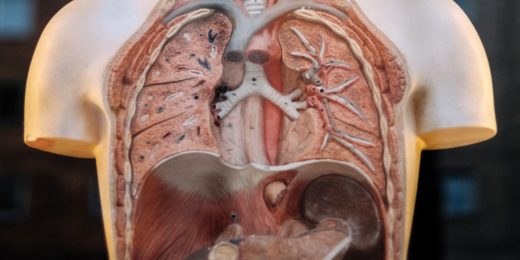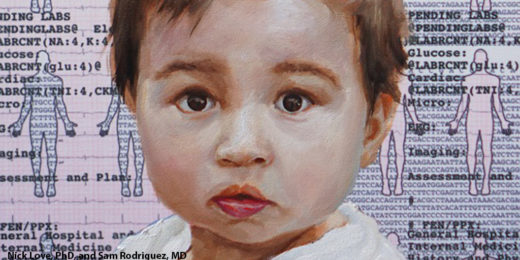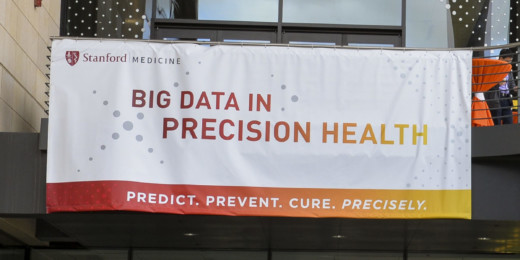Maja Matarić, a robiticist at the University of Southern California, plans to speak about socially assistive robotics at Big Data in Precision Health.
Category: Precision Health
Immune cell turned biomarker: Predicting severity of lung scarring
By scouting for a particular immune cell in the blood, scientists can tell which patients with a lung-scarring disease are at higher risk for death.
What chemicals or critters do you encounter daily? Stanford researchers are taking a look
Stanford researcher Michael Snyder describes his work cataloging the vast number of environmental particulates individuals are exposed to.
Proceed with caution before changing colonoscopy recommendations, Stanford physician urges
A push to personalize medicine can backfire when it comes to screening for colorectal cancer, says a Stanford gastroenterologist.
Registration now open for Stanford’s Big Data in Precision Health conference
The seventh annual Big Data in Precision Health conference will be held May 22 and 23 on the Stanford campus; registration is now open.
Precision health approach tapped to identify causes of poverty
A new approach to identifying the factors linked to poverty could help researchers identify ways to prevent it.
A look at how colds and chronic disease affect DNA expression
Geneticist Michael Snyder has tracked the expression of his genes for three years, focusing on changes in response to chronic or acute disease.
Big data strikes again — subdividing tumor types to predict patient outcome, personalized treatment
A Stanford team has developed an algorithm that uses data about tumors to identify new classifications that can provide information about patient outcomes
The “exposome” revealed: a barrage of bacteria, chemicals, microscopic animals and more
Scientists have measured the human “exposome,” or the particulates, chemicals, and microbes that individually swarm us all, in unprecedented detail.
Journal editor aims to prompt thoughtful review of ethics in precision health
Stanford medical student Jason Neil Batten edits an ethics in precision health journal issue for the American Medical Association's Journal of Ethics.
How researchers are working to render disease obsolete
PHIND scientists discuss how to stop disease in its track, aiming for earlier diagnostics and more precise medical treatments.
Stanford Medicine magazine reports on the future of Stanford’s medical school, hospitals and clinics
The new issue of Stanford Medicine explores how Stanford's health care entities crafted a shared vision that is playing out in research, education and care.
From AI to clinical informatics, Big Data conference videos offer deeper dive
Video interviews from Stanford's Big Data in Precision Health conference explore topics from artificial intelligence in radiology to clinical informatics.
Wearable device designed to measure cortisol in sweat
Stanford researchers developed a wearable device to measure how much cortisol people produce in their sweat. Cortisol is critical to many physiological processes.
Realizing the clinical potential of electronic health records
Stanford Medicine's Electronic Health Records National Symposium touched on improving inefficiencies of EHRs, harnessing data for population health management, building on successes and overcoming obstacles.
New center aims to predict disease earlier and, when possible, prevent it altogether
Scientists who work with the Stanford Precision Health and Integrated Diagnostics Center set out to find new ways to precisely predict, prevent and diagnose diseases that range from diabetes to mental health.

















